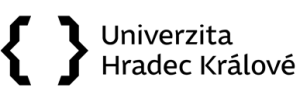The emphasis is placed on the processual side of the public policy dynamics (with a focus on the fields of Welfare State and social policies). The subject focuses on the processes of decision-making and implementation of public policy (social programs, or social policies), and on the approaches towards their analysis. The trends towards the so-called New Public Management and the changes in the ways of governing (governance) will also be mentioned. As to the analysis of the creation and implementation of policy, the subject focuses on the rationalism and incrementalism in the formation of public policy and on the vertical and horizontal dimensions of policy making - it mentions the approaches towards the creation and analysis of the top-down policy and the bottom-up policy.
The processual side of social policy (its formation and dynamics) should allow students to reflect on the complexity of the mutual relations of all of the relevant players in social policy and interpret the difficulties in the formation and implementation of public (social) policies. The knowledge is usable both at the local and national (international) level of creation and in the analysis of social programs (social policies). In practice, the knowledge can be used in the conceptual and analytic activities of the Ministry of Labour and Social Affairs, at the regional and municipal level in the process of designing of the individual thematic areas of social policy (family policy, employment policy, education policy,...), and also in the process of the community planning of social services.
Curriculum:
- New forms of "governance" in society, Participative governance
- Decentralisation tendencies in public policy
- Who exactly creates policy? Vertical and horizontal dimensions of policy
- Players in policy making
- Rationalism and incremental approach towards policy making
- Different concepts of the implementation of public policy, policy as an implementation of goals: top-down perspective and implementation in a bottom-up perspective
Students have oral presentations of their seminar papers in pairs - the presentation is given during a seminar (only full-time students). Each presentation concludes with topics for a discussion and a discussion, which is moderated by the presenting pair.
Students are obliged to compose a seminar paper in pairs (in the case of full-time study - co-authorship of two students). Each seminar paper is dealing with an issue arising from one of the subtopics of the syllabus and is grounded in the recommended literature. The text range of the paper is 2500-5000 words. Introduction text of the paper contains the aim of the paper, application (usefulness in practice), and symbolic aim (a rationale for why it is necessary to deal with the issue). Also, the introduction contains a brief synopsis, or more precisely a sequence of subtopics of the text (and a comment on the logic of their categorization and order ...). The text works with printed resources, electronic resources, and at least one resource in a foreign-language. The paper contains references to the resources directly in the text. At the end of the text there is (1) an inventory of the immediately used and (2) other relevant resources, which were freely used in the process of working on the topic (neither cited nor paraphrased in the text). The text abides by the basic points of ISO 690 standard, which concerns the bibliographic citation of sources. When evaluating the graded assessment papers, the teacher assess the effort to state, not only describe the state of the issue, the contexts and possible causes and consequences of the analysed phenomena and measures.
- Teacher: Martin Smutek
